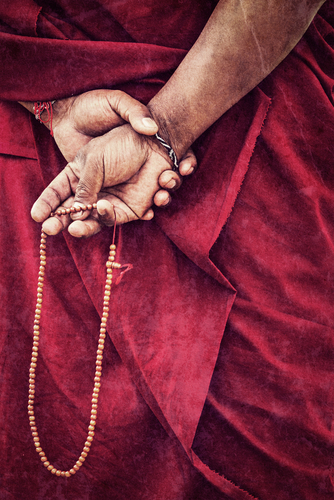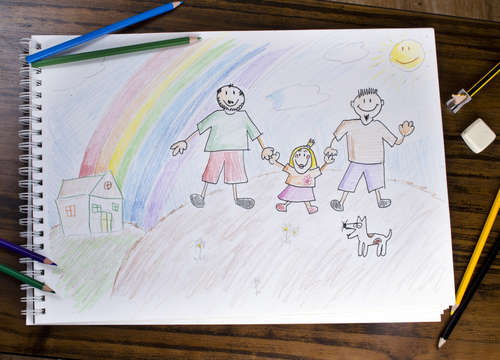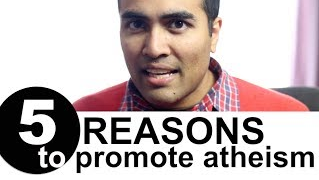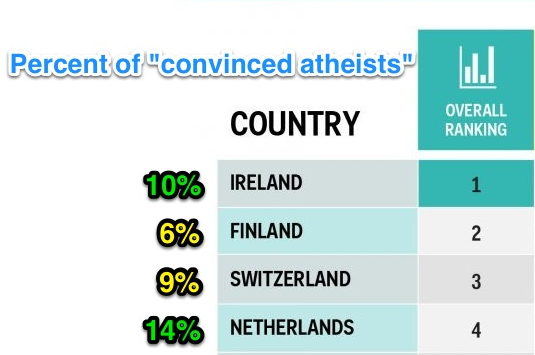Hemant Mehta's Blog, page 1983
July 7, 2014
20 Questions Following the Hobby Lobby Ruling
The video below, part of The Atheist Voice series, discusses 20 questions I have following the Supreme Court’s Hobby Lobby ruling:
The list was inspired by this Reddit thread.
We’d love to hear your thoughts on the project — more videos will be posted soon — and we’d also appreciate your suggestions as to which questions we ought to tackle next!
And if you like what you’re seeing, please consider supporting this site on Patreon.
Friendly Atheist Podcast Episode 4: Stephanie Drury
Our latest podcast guest is Stephanie Drury, the hilarious mind behind Stuff Christian Culture Likes (@StuffCCLikes on Twitter).
We spoke with Stephanie about why Christian culture can be cringe-worthy, why Christian men constantly feel the need to talk about how hot their wives are, Pastor Mark Driscoll, and the healing abilities of letting all that frustration out online.
We’d love to hear your thoughts on the podcast. If you have any suggestions for people we should chat with, please leave them in the comments, too.
You can subscribe to the podcast on iTunes, get the MP3 directly, or just listen to the whole thing below.
And if you like what you’re hearing, please consider supporting this site on Patreon and leaving us a positive rating!
There’s No Reason to Thank God After He Nearly Killed You
50-year-old Steven Robles was lucky he didn’t die over the weekend.
He was swimming in Manhattan Beach in Los Angeles when a seven-foot-long great white shark somehow broke free from a fishing line and ended up biting Robles on his torso:
“For a second, I thought this might be it,” Robles said. “I was absolutely terrified. I never thought I would die in the ocean.”
…
“I was screaming at the top of my lungs. My first instinct was to grab my friend… he held me and was taking it in what was going on,” Robles said.
A couple of fisherman caught this all on camera and Robles commented on the fact that one of them was laughing in that video:
“What the hell was he thinking? I was almost ready to die right there,” Robles said. “And I don’t think they understood what was really going on. I hope they didn’t understand, because if they did, oh my God, it wasn’t even close to funny. This was me about to lose my life.”
So we’re pretty clear on the fact that this was bad. Really, really bad. Thankfully, Robles should be back to normal in no time.
… and you know damn well why I’m bringing this story up on this site:
“I’m very lucky to be here. I’m very thankful God was on my side, protecting me. I truly believe God was my savior today,” he said.
God was on Robles’ side?! God was his savior?!
That’s a lot of unwarranted praise for someone who sent a great white shark to damn near kill you…
If that’s how a benevolent God acts, Robles should be thankful God wasn’t in a bad mood this weekend.
Much like someone who survives a massacre, it’s just another example of someone thanking God even when it’s abundantly clear that, if God really was in control, He deserves no praise whatsoever.
Fake Buddhist Monks Have Become a Times Square Staple
If it talks like a duck and walks like a duck, it’s probably a duck.
No such conclusion applies to the ostensibly Buddhist monks of New York City, who are, in most cases, just aggressive beggars with shaved heads and flowing robes — and who don’t know the first thing about Buddhism, suggests the New York Times:
They are mostly men of Chinese descent, with shaved heads, beatific smiles and flowing robes of orange, but sometimes brown or gray. They follow a similar script: Offering wishes of peace and a shiny amulet, they solicit donations from passers-by, often reinforcing their pitch by showing a picture of a temple for which the money seems to be intended. Then they open a notebook filled with the names of previous donors and the amounts given.
The men appear to be Buddhist monks; a smaller number of similarly dressed women say they are Taoist nuns.
But they’re really just impostors, who prove that a demand for money can be successful if you slather it in religious sauce.
[T]hese monks tend to stand out, both for their attire and for their sense of entitlement. They offer the amulet and, in some cases, a bracelet; if they are not satisfied with the donation, they unabashedly demand $20 or more. …
Now it can be difficult for authentic monks to walk around in Midtown without drawing negative attention.
The administrators of the Facebook page Fake Monks in New York City estimate that the most successful of the faux-pious Big Apple panhandlers clear up to $500 a day.
The lucrative begging under the guise of religion is ubiquitous in other countries too. For instance, imitator monks have been making a nuisance of themselves in Hong Kong, mainland China, Canada, Australia, and New Zealand.
(Image via Shutterstock)
Major Study Shows Kids of Same-Sex Parents Are Happier and Healthier
Marriage equality opponents across the world repeat one stale argument: “Think of the children!” But according to a paramount new study, “thinking of the children” is actually a very good reason to embrace and empower same-sex couples.
The new study out of Australia shows that, contrary to the propaganda spouted by conservative Christian groups like Tony Perkins‘s Family Research Council, the children of same-sex parents are actually happier and healthier than their peers of different-sex parents.
Researchers from the University of Melbourne surveyed 315 same-sex parents (80% male and 18% female) of 500 children, making this the largest study of its kind in the world. Family structures ran the gamut from couples who had adopted together, to those who used assisted reproductive technologies, to those who raised children from one another’s previous relationships (and plenty in between).
According to the full study, previous research on the subject has been mostly limited to kids of lesbian couples, has taken a narrow perspective when considering children’s health, and has not thoroughly considered the effects of anti-LGBT stigma. This study included a sizable (though not immense) sample of male parents and looked more closely at health and stigma in families. It also included data from same-sex attracted single parents (about 7% of the pool).
Overall, the study found that kids of same-sex parents performed about equally with the general population in health categories like “emotional behavior” and “physical functioning.” But the kids of same-sex parents had a leg up in other categories:
Lead researcher Doctor Simon Crouch said children raised by same-sex partners scored an average of 6 percent higher than the general population on measures of general health and family cohesion.
“That’s really a measure that looks at how well families get along, and it seems that same-sex-parent families and the children in them are getting along well, and this has positive impacts on child health,” Dr. Crouch said.
There are plenty of casual theories floating around about why kids with two moms or two dads might fare better. One predominant idea is that kids with same-sex parents are far more likely to have been “planned,” borne of a massive parental investment of time, money and emotional energy. Researcher Simon Crouch says he suspects the difference is in parental gender roles and expectations, an explanation already seen in other studies.
“Previous research has suggested that parenting roles and work roles, and home roles within same-sex parenting families are more equitably distributed when compared to heterosexual families,” he said.
He says that same-sex couples experience less pressure to fill gendered roles in the family — Dad as the breadwinner, Mom as the homemaker, etc. — leading to a more collaborative, balanced home life.
“So what this means is that people take on roles that are suited to their skill sets rather than falling into those gender stereotypes, which is mum staying home and looking after the kids and dad going out to earn money.
“What this leads to is a more harmonious family unit and therefore feeding on to better health and wellbeing.”
The survey also looked into the effects of casual discrimination. For two-thirds of the children surveyed, parents reported some instance of anti-LGBT stigma from the outside world. According to Crouch:
“For these families it might be something as simple as a letter coming home from school addressed to Mr. and Mrs., which wouldn’t be appropriate for these families, but it can be more overt and damaging such as bullying in the playground.”
The results echoed earlier studies suggesting that stigma affects kids’ behavior and general wellbeing, but they showed that stigma can be especially harmful around matters of physical and mental health. Here’s one example as written in the study:
Lesbian parents in Australia have previously described the barriers they perceive when accessing healthcare services and often times have to choose a disclosure strategy to adopt when dealing with practitioners. Instead of feeling accepted when seeking healthcare for their children this perceived stigma can lead to a sense of vulnerability where in fact healthcare services should “be a safe place.”
Crouch himself is gay, which groups like the conservative Family Voice Australia say is reason enough to discredit the study. Clearly, though, anti-gay groups aren’t great at coming up with any research that supports their claim that LGBT people aren’t fit to parent. Their paramount doctrine, a survey by Christian researcher Mark Regnerus, has been decried as “fundamentally flawed” by institutions including the American Sociological Association and his own university:
Like all faculty, Dr. Regnerus has the right to pursue his areas of research and express his point of view. However, Dr. Regnerus’ opinions are his own. They do not reflect the views of the Sociology Department of The University of Texas at Austin. Nor do they reflect the views of the American Sociological Association, which takes the position that the conclusions he draws from his study of gay parenting are fundamentally flawed on conceptual and methodological grounds and that findings from Dr. Regnerus’ work have been cited inappropriately in efforts to diminish the civil rights and legitimacy of LBGTQ partners and their families. We encourage society as a whole to evaluate his claims.
As PolicyMic’s Tom McKay wrote, it’s unlikely that Perkins or his minions will back down now that these results have been released. Another credible study has annihilated everything they stand for — same old! What we can be thankful for, rather, is that international visibility of happy, healthy queer families is on the upswing. For those of us who are excited to upend the “one-mommy-one-daddy” family structure, that can only mean good things.
(Image via Shutterstock)
A Debate on Whether or Not the World is Better with Christianity
Unlike the recent debate over God’s existence between Matt Dillahunty and Sye Ten Bruggencate, where two people spoke right past each other and only one (Matt) seemed interested in facts, here’s a much better debate between an atheist and a Christian.
During ReasonFest this past spring, Dan Barker of the Freedom From Religion Foundation debated Park Hill Baptist Church Pastor Eugene Curry on the topic: “Is The World Better With Christianity?”
It’s a much better debate, as far as debates go, even though I felt there was a very clear winner. (Take a guess!)
If any moments stand out, please leave a timestamp/summary in the comments!
This is What We Call Christian Morality?
Last year, Sam Harris posted on his website a popular audio excerpt from one of his debates in which he talks about the flimsy morality of God. Harris gave his readers permission to turn that excerpt into a video and Kristoffer Hellesmark just posted his version online yesterday:
You can also see a different video of the same speech right here.
July 6, 2014
Five Good Reasons to Promote Atheism
The video below, part of The Atheist Voice series, discusses five good reasons to promote atheism:
We’d love to hear your thoughts on the project — more videos will be posted soon — and we’d also appreciate your suggestions as to which questions we ought to tackle next!
And if you like what you’re seeing, please consider supporting this site on Patreon.
The Best Protest Sign You’ll Ever See Against a Homophobic Preacher
This wonderful photo of a student mocking notorious campus preacher Brother Jed has been making the rounds online, especially after it received a stamp of approval from George Takei:
You can’t choose to like dick but you can choose to be one. For example —>
In case you’re curious, that took place at the University of Wisconsin-Eau Claire in the fall of 2012. Several days ago, I asked the student holding the sign some questions about the reactions he received (then and now) but he hasn’t responded to me yet (which is also why I don’t feel comfortable mentioning his name). However, a representative from the school’s Secular Student Alliance did write back to tell me, “As far as the reception that the sign got, it was pretty popular among students passing by. Many people stopped to take pictures of him and with him.”
It’s just a perfect example of humor used as a weapon against bad ideas.
Are the Countries That Contribute the Most Good to the World Also Home to More Atheists? Let’s Find Out
The “Good Country Index” recently released a list of 125 countries, all ranked in order of how much “good” they contribute to the world, based on factors such as international peace, prosperity/equality, culture, science/technology, etc. Business Insider then created a nice visual representation of the top 30 countries on that list.
In 2012, WIN-Gallup International released a global survey on religiosity, in which 57 countries were ranked according to what percentage of citizens called themselves “religious,” “not religious,” and “convinced atheist.”
So I put the two together. Just to see if there was any correlation.
Here’s what I did: I wanted to know where those top 30 “good” countries appeared on the “convinced atheist” list. (Keep in mind that 6% is a pretty high percentage of atheists in any country.) Using BI‘s chart, I added in the percentage of “convinced atheists” whenever possible. The top tier of atheistic countries are represented by green numbers, the next tier is in yellow, and the lowest tier is in red.
As you can see, a lot of those “good” countries have relatively high levels of atheism (click to enlarge):
What does it mean?
Well… not that much, really.
China, which has the highest percentage of atheists in the world (47%) is ranked 107 on the “Good Countries” list. (China doesn’t exactly scream “religious freedom.”)
In fact, just about all the countries that are considered really “good” have democracy and freedom of religion. You’re allowed to say you’re an atheist without worrying that your life is in danger, so of course those numbers are likely to be higher.
More atheists don’t necessarily make your country better, but more people comfortably saying they’re atheists is a sign that your country is great in plenty of other ways, too.
(Thanks to Leif for the idea)
Hemant Mehta's Blog
- Hemant Mehta's profile
- 39 followers















